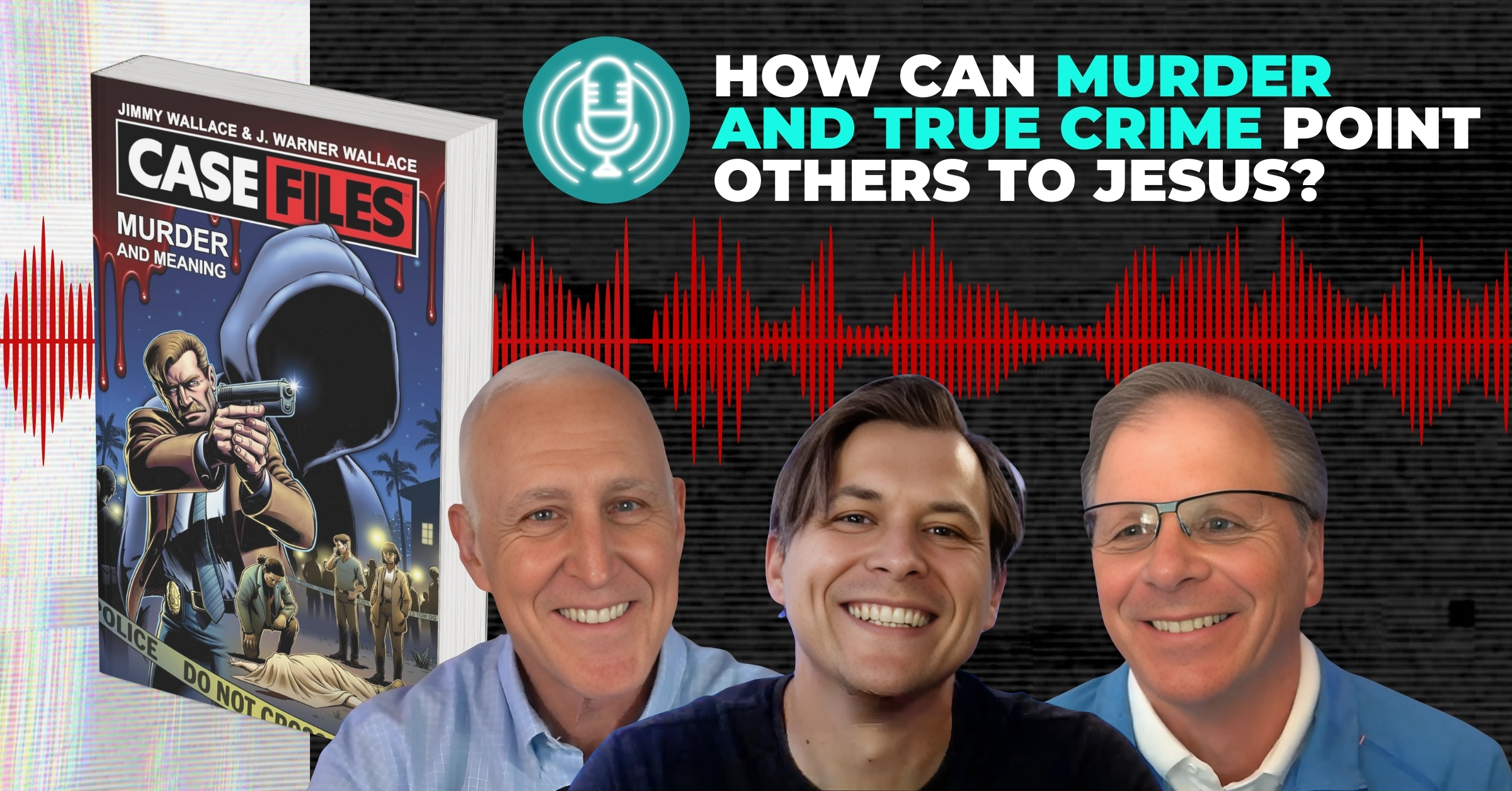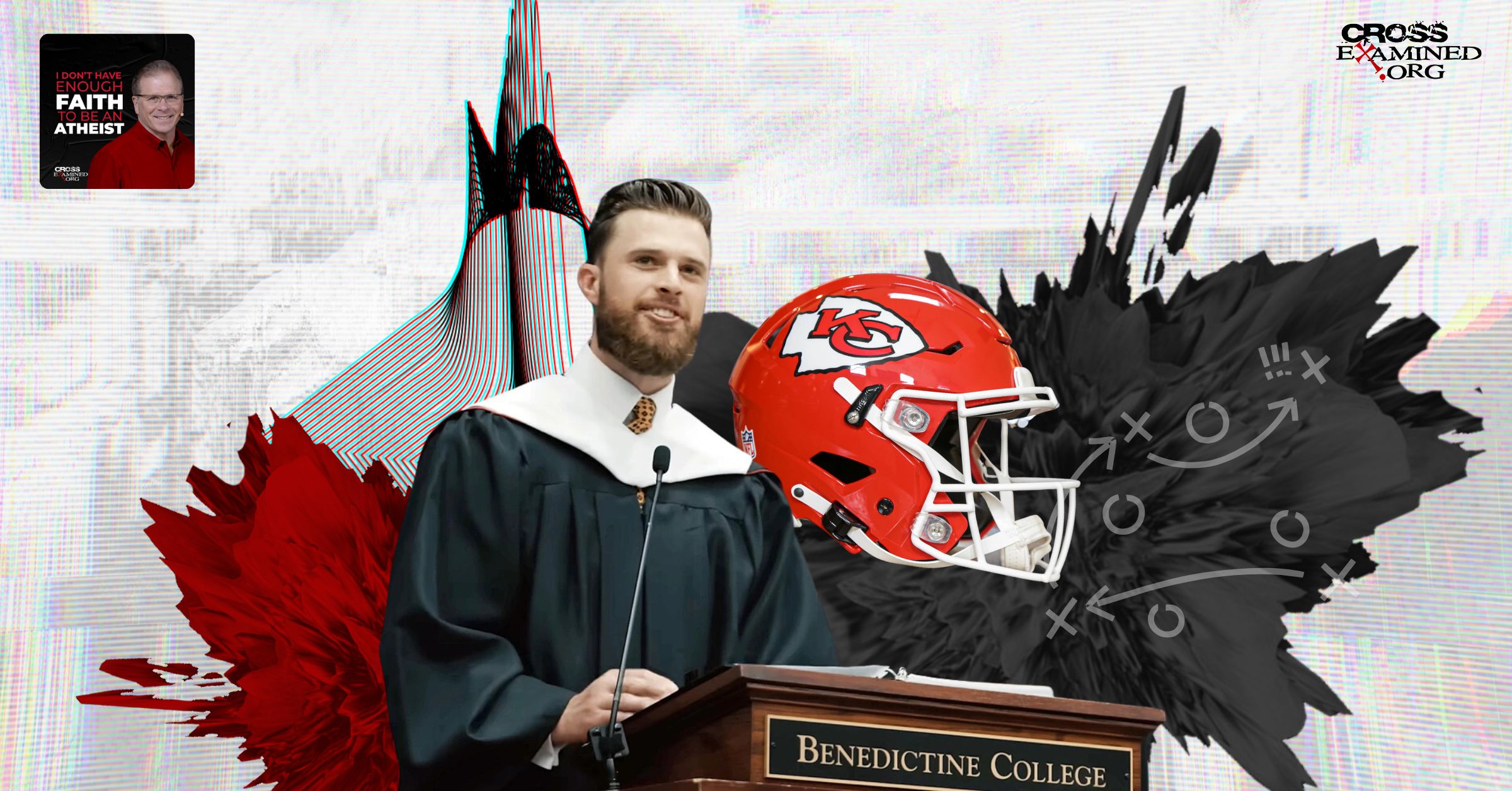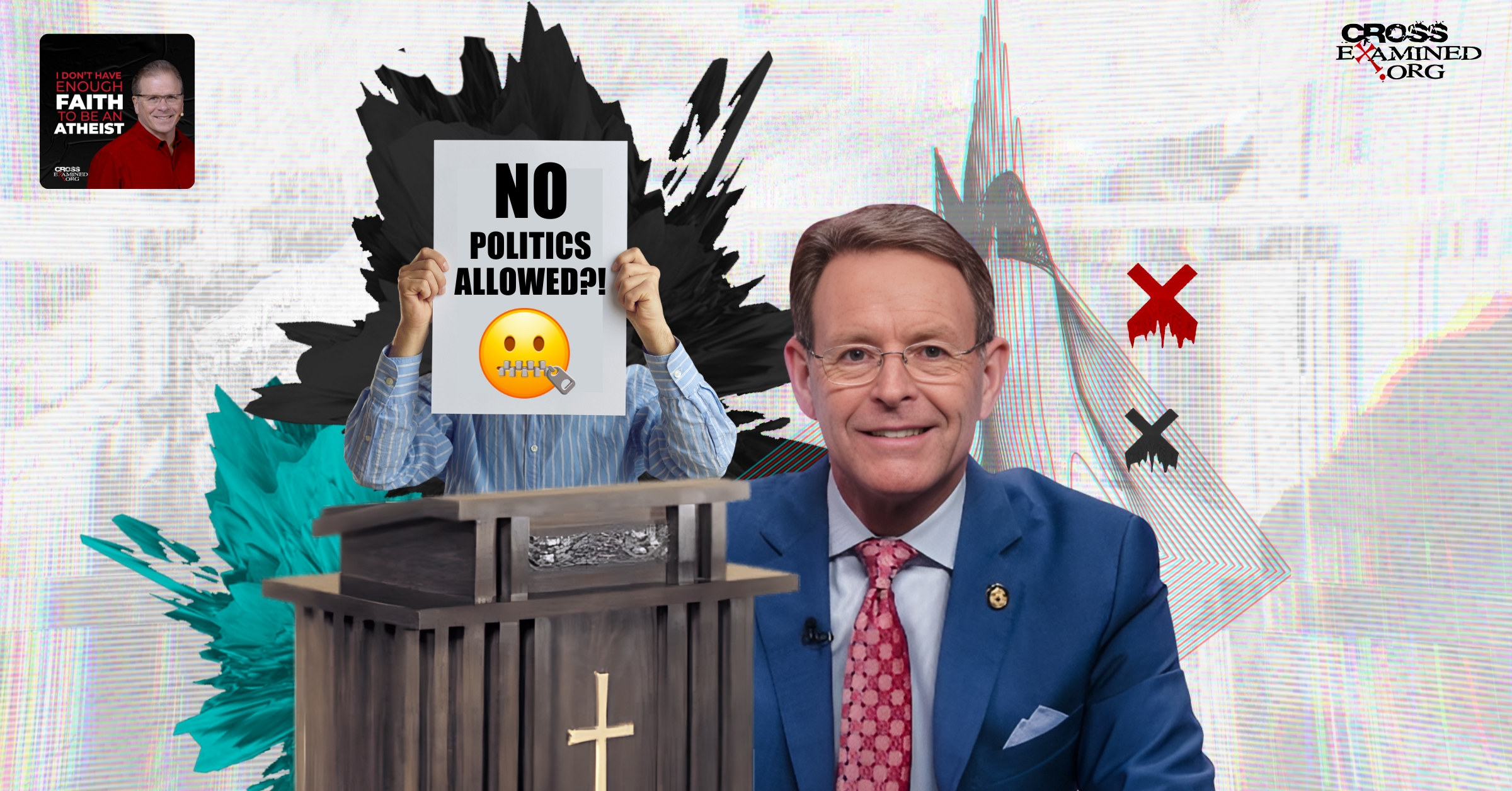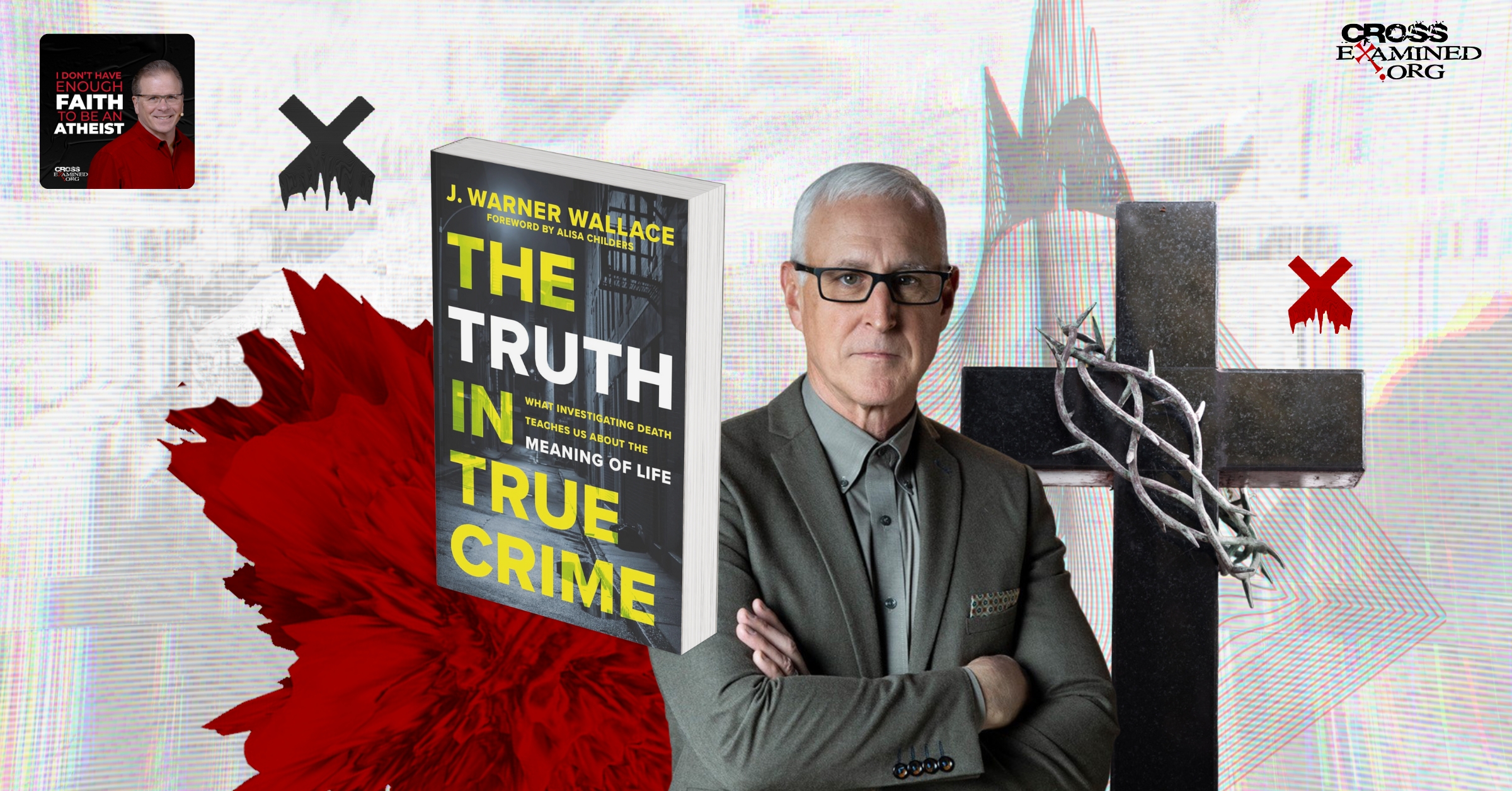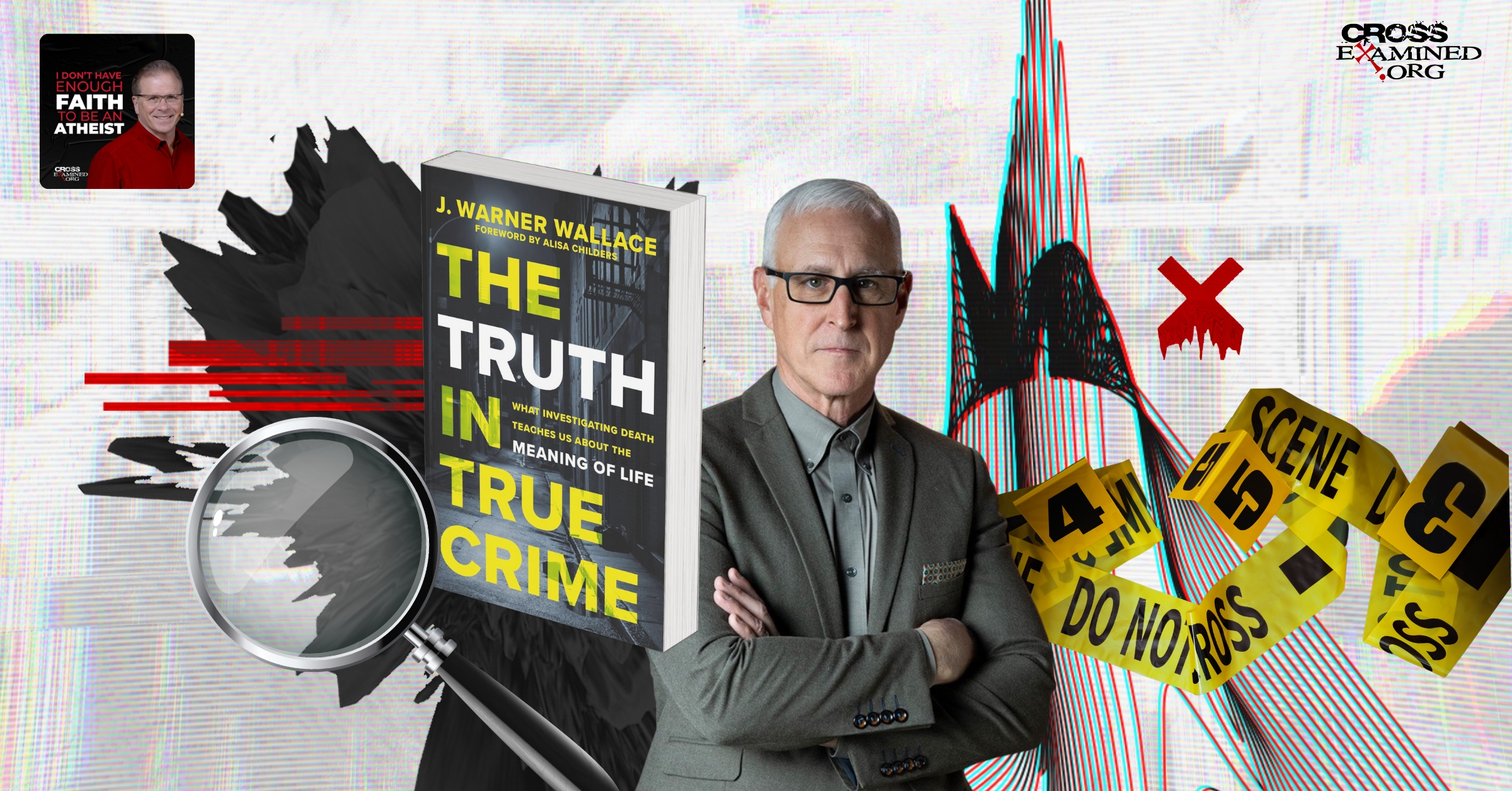By Ryan Leasure
This past weekend, two mass-scaled shootings transpired on American soil. El Paso, Texas, and Dayton, Ohio experienced unspeakable carnage. Two men, fueled by hatred for mankind, slaughtered dozens of innocent people in cold blood.
In response, people of all stripes spoke out against these atrocities. Men and women, democrat and republican, Christian and atheist, all condemned these crimes. In other words, the denunciation of these senseless and cowardly acts has been universal.
But doesn’t this universal agreement fly in the face of our relativistic cultural values? “Don’t force your morality on others” suddenly doesn’t sound so appealing in situations like this. Don’t we all want everyone else to adopt our same moral position on murder?
This, of course, raises important questions. Does objective morality exist? That is, were those two men objectively wrong in what they did over the weekend? And if so, where does this agreed-upon morality come from?
Objective Morality?
Relativists argue that there is no such thing as objective morality. Rather, morality is subjective — dependent on individual opinions. So in situations like these mass shootings, the relativist cannot say that the shooters were wrong. If so, that would imply that an objective standard exists that these two individuals missed.
Rather, the relativist can only say they didn’t care for these events. They found them distasteful. “Murder is wrong,” and “rape is evil” are just opinions on par with “pepperoni is better than sausage.”
But isn’t it self-evident that mass murder is in a different category than pizza toppings? The very fact that society has universally condemned these acts ought to tip us off that something more than mere opinion is at work here. When we all cry “foul” in unison, we’re implicitly affirming that “fair” exists.
C. S. Lewis made this argument years ago. He wrote:
[As an atheist] my argument against God was that the universe seemed so cruel and unjust. But how had I got this idea of just and unjust? A man does not call a line crooked unless he has some idea of a straight line. What was I comparing this universe to when I called it unjust?1
What Lewis and so many others have argued is that objective morality exists, and this is most evident when people don’t live up to that moral standard.
If we learn, for example, that a man raped a little girl, brutally murdered her, and dismembered her body, would we say that he committed evil? If yes, then we recognize an objective moral standard exists that was not met. Our senses tell us that acts such as abuse, rape, theft, deceit, murder, etc., all fail to measure up to a standard of some sort.
This moral standard seems so patently obvious; it’s odd when people try to deny it. A quick rule of thumb is that when a certain group can’t condemn the Holocaust as evil, we conclude that their views are absurd. Of course, if those same relativists had been in those concentration camps, they’d drop their relativism and recognize evil for what it is.
Even the most committed relativist will come around if you steal his wallet or spread false rumors about him. Phrases like “that’s not right” or “that’s not fair” will come spewing out faster than you can blink your eye.
Where Does Objective Morality Come from?
The reality of objective morality raises a significant question. Where does it come from? For the naturalists (those that believe only the natural world exists), these objective morals are mere illusory by-products of evolution and social conditioning.
For most naturalists, science is the only begetter of knowledge. But science itself is amoral. Science cannot tell us how things ought to be. It can only tell us how things are. That is, science can tell us how to make chemical weapons, but it cannot tell us whether we should use them.
Objective morals simply cannot derive from something morally neutral like science. And they certainly don’t arise from Darwinian evolution. According to Darwinists, people only do good because it aids in their survival. But if that’s the case, can we really call their actions morally good? Fundamentally, the motivation behind “good” acts is self-serving, and thus not worthy of praise.
Also, doesn’t Darwinism, on the whole, make morality arbitrary? Couldn’t the human race have found rape or killing each other for food acceptable if it would have evolved like other species from the animal kingdom? Sharks do this all the time, but are they immoral?
Darwinists who find this notion uncomfortable typically adopt humanism — the belief that humans are the center of the universe and morality is based on what helps them flourish. But again, isn’t humanism purely arbitrary in a Darwinian world?
Darwin, after all, taught that every living species descended from the same common ancestor in the primordial soup. Thus, humans are simply one small branch on his tree of life. Other branches include crickets, lions, fungus, and every other living species. Why should we think the human branch is the most valuable? Why are we more important than crickets? Doesn’t this make us guilty of speciesism?
Ultimately, atheism’s understanding of morality is purely arbitrary. It simply cannot account for objective morality.
In the end, God is the best explanation for objective morality. God’s very nature grounds morality so that anything done that goes against his character is wrong and/or evil. Furthermore, because God made humans in his image, each person possesses intrinsic value.
Answering the Skeptics’ Objections
Without a doubt, the first objection raised to the claim that objective morality doesn’t exist without God is that atheists do good without believing in God. But this misses the point. Of course, people can still do good things without believing in God. The question is not: do we have to believe in God to do good? Rather, the question is: if God doesn’t exist, is anything objectively good at all? As I’ve argued, moral categories are arbitrary in an atheistic world.
If we acknowledge, however, that the two mass-shooters committed evil, then objective moral categories exist. And if objective moral categories exist, then a transcendental lawgiver is the best explanation.
Which leads to the second objection — the Euthyphro Dilemma. The dilemma goes like this: Is something good because God wills it? Or does God will something because it is good? Skeptics raise this objection to put the theist between a rock and a hard place.
For if we say something is good because God wills it, then good is ultimately arbitrary. But if we say God wills something because it’s good, then the objective standard exists beyond God. But the skeptic presents us with a false dilemma here. A third option exists which states God wills something because he is good. That is to say; he is the standard by which we get all moral categories.
Another frequent objection is that we don’t need the Bible to know that we shouldn’t murder or steal. After all, other religious books tell us the same as do most legal codes. But again, this is not the argument theists make.
Nobody’s arguing you need to read the Bible to know right from wrong. Rather, we’re arguing that objective right and wrong don’t exist in a world without a transcendent moral law. But the very fact that every world religion and legal code agree on basic fundamental morals suggests that a moral law exists that transcends the human race.
The Apostle Paul tells us in Romans 2:14-15. He writes, “For when Gentiles, who do not have the law, by nature do what the law requires, they are a law to themselves, even though they do not have the law. They show that the work of the law is written on their hearts, while their conscience also bears witness, and their conflicting thoughts accuse or even excuse them.”
That is to say; people don’t need the Bible to know right from wrong. God has instilled this moral code in the hearts of all people.
Which raises a final objection. If a moral law exists, why is there so much disagreement on morality? Disagreements certainly exists around issues like abortion and sexuality. But does that imply no right view exists? Of course not. Which is why we strive to make our views the accepted ones. In fact, if culture adopts our views, we’ll say things like our culture is progressing. Progressing toward what? The moral standard we believe to be right.
Be that as it may, the human race generally agrees on several basic points. People have certain rights. We should treat others with respect. Love is better than hate. Honesty is better than deceit. Courage is better than cowardice. And so forth. As C. S. Lewis aptly states:
Think of a country where people were admired for running away in battle, or where a man felt proud of double-crossing all the people who had been kindest to him. You might just as well try to imagine a country where two and two made five.2
The universal agreement on the most basic moral categories suggests a transcendent moral law.
The Moral Argument for God
I believe that objective morality is one of the strongest arguments for God’s existence. Perhaps a more helpful way of looking at it would be this syllogism:
- If God does not exist, objective morality does not exist.
- Objective morality does exist.
- Therefore, God exists.
This argument is logically air tight. If premises 1 and 2 are true, then 3 necessarily follows. I’ve made a case for 1 and 2 in this article. It concludes then that God exists.
So can we be good without God? No, because if he doesn’t exist, nothing objectively good exists either.
Ryan Leasure Holds a Master of Arts from Furman University and a Masters of Divinity from the Southern Baptist Theological Seminary. He currently serves as a pastor at Grace Bible Church in Moore, SC.
Original Blog Source: http://bit.ly/2KJFXnY

